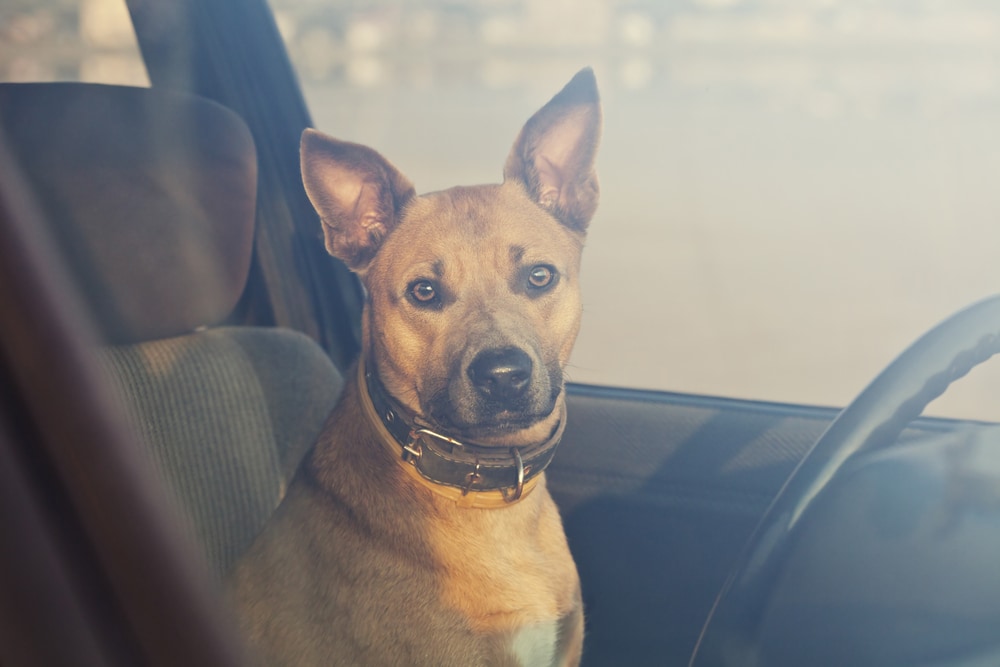The Importance of Hot Car Death Prevention
In 2019 there were 52 hot car deaths in the United States, according to the National Highway Traffic Safety Administration (NHTSA). This sobering statistic reveals the dangers of sitting in a hot car.
Many people think hot car deaths are due to carelessness and that a hot car death would never happen to them, but there are several facts about hot cars that most don’t realize.
- Hot car deaths do not only happen in the summer. Many people wonder: how hot a car can get in the spring or fall? A hot car temperature can reach 110 degrees, even if it is less than 60 degrees outside.
- A toddler or baby in a hot car may be more dangerous because children’s body temperatures rise three to five times faster than adults. Heatstroke can occur in children with a body temperature of 104, and death can occur with a body temperature of 107.
- Rolled down windows and shaded areas do not have much of an impact on hot car death prevention. A study conducted by Arizona State University researchers revealed that a vehicle could hit deadly temperatures in as little as one hour. Regardless of whether the car was parked in direct sunlight or the shade.
- According to the American Society for the Prevention of Cruelty to Animals (ASPCA), many states have laws that prohibit leaving an animal unattended in a motor vehicle.
While these facts can seem daunting, fortunately, there are some tips you can keep in mind for hot car death prevention.
Always Look in the Backseat Before Locking Your Car
Even if you were not transporting your child, check the back seat before you lock and leave your car. You never know if a child snuck in the car behind you.
Do Not Leave a Car Unlocked Outside Your Home or Garage
You may think that hot car deaths only occur when a child is forgotten. But according to the NHTSA, 25 percent of hot car deaths occur when a child gets into an unattended vehicle. Also, be sure to keep your keys hidden and out of reach of your children.
Keep Something Important in the Backseat Other than Your Child
You might think you would never forget your child. Still, a frazzled morning or a different routine could make anything possible. Get in the habit of leaving something important in the backseat when your child is riding in the car. This could be your cell phone, wallet, briefcase, or another essential item you need during the day.
Call 911 if You See a Child or Pet Alone in a Car

Check to make sure pets and children in a hot car are okay and responsive. If they are not, call 911 immediately and stay at the scene to locate the vehicle’s owner.
Know the Laws When it Comes to Hot Car Death Prevention
You could face legal implications if you try to help a baby or pet in a hot car. Many states have Good Samaritan laws, which offer legal protection for an individual who seeks to help another person in distress. This may also cover breaking a window to save a child. You might be wondering, can you break into a car to save a dog as well? It is important to note that there are only a handful of states where this would be permissible. If you see a pet unaccompanied in a hot car, your best bet would be to call the authorities as soon as possible.
Do Not Knowingly Leave a Child or Pet in the Car
When it comes to a list of things of what not to leave in hot car or vehicles, children and pets should always be at the top of that list. Even if your child is napping or you want to run into a store quickly while your dog stays in the car, it is never a good idea to leave them unattended.
Hot car deaths are one of the leading non-crash related fatalities among children. While you may think it could never happen to you, the facts demonstrate that a hot car can be more dangerous than you may have realized. Be sure to follow these tips to avoid the unthinkable reality of a hot car death in your family.
Get the protection you need with a California car insurance policy from Cost-U-Less while saving up to $762!*. Get a quote completely free online, over the phone, or at one of our offices near you today!
*Based on a Q2 2020 study of Cost-U-Less customers who reported saving when they switched.



